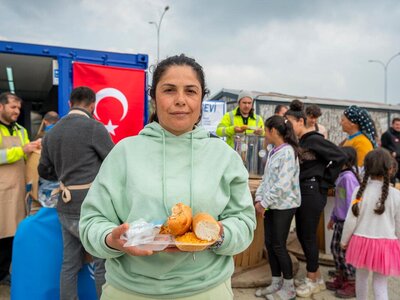When faced with an emergency or dealing with
structural food insecurity,
information can save lives.
Through food security analysis and monitoring,
WFP provides
actionable food security
information
for each country in which it works. By
combining traditional assessment methods with
advanced and emerging technologies, WFP is
able to
identify food insecure populations
around the world, and to
establish the underlying causes of food
insecurity.
WFP works closely with
national governments, UN partners and
NGOs to inform the policies and
programmes
adopted to fight hunger in different
circumstances. Economic,geospatial and
household vulnerability data is analysed to
provide a picture of the food security
situation on which to base the design of
WFP’s operations.
WFP’s food security analysts do a wide range
of
face-to-face assessments,
including
'baseline' assessments
(also known as Comprehensive Food Security
and Vulnerability Analyses, or CFSVA) and
emergency food security
assessments
(EFSA) in rapid and slow-onset emergencies
such as hurricanes, floods, droughts and
conflict situations. EFSA reports provide a
snapshot of the food security situation and
are updated on a regular basis.
Because food security assessments take time,
they are complemented by
ongoing monitoring to track changes in
people’s food security situations, allowing for programmatic fine tuning.
This includes gathering information on food
consumption, household incomes, strategies
to cope at difficult times and prices to
identify how seasonality affects food
security.
To collect food security data from places
that are too remote or dangerous for
face-to-face assessments, or when
high-frequency data is needed to monitor an
evolving situation, WFP resorts to mobile
Vulnerability Analysis and Mapping, or mVAM.
This approach uses
mobile technology such as
SMS, Interactive Voice Response (IVR) or
live calls
to reach vulnerable populations and track
food security trends in real-time. mVAM also uses an automated two-way
communication system which gives people
access to the latest information for free.
WFP also conducts food security
assessments jointly with partners, such as governments, the Food and
Agriculture Organization of the United
Nations (FAO), the United Nations refugee
agency (UNHCR), UNICEF, and international
and national NGOs. One important platform
where our food security data is used is the
Integrated Phase Classification (IPC), a global multi-agency and multi-sectoral
initiative that builds on technical
consensus among partners.







